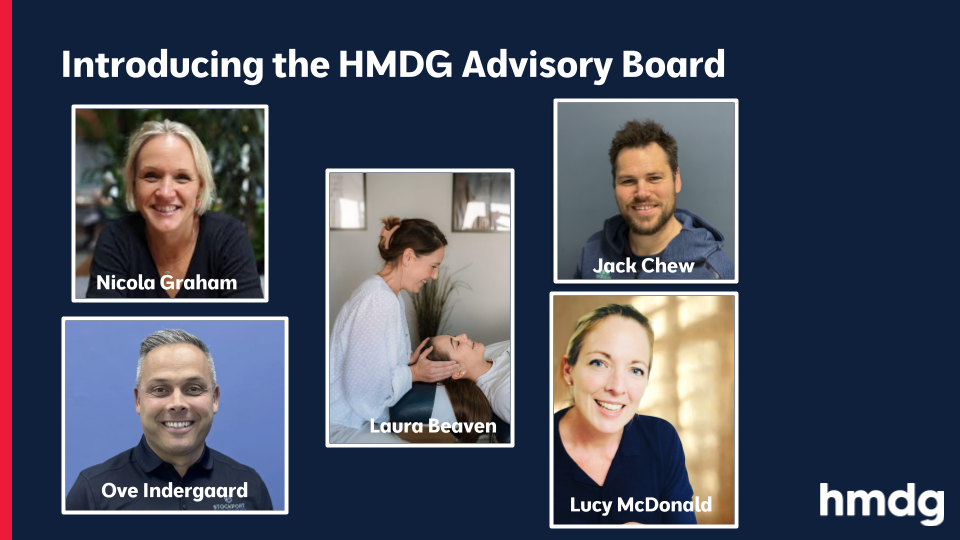Lead generation as a marketing technique has become more and more prevalent in the healthcare sector over the past few years. Let’s look at what it is, how it works, why, in the main, healthcare clinics should stay well clear of it.
What is a lead?
In marketing terms, a lead refers to a person that has expressed interest in the product or service that a company offers.
Okay great so far…
How does it work?
This interest is usually shown by the potential customer providing their contact information, such as an email address or phone number, by filling out an online form or subscribing to a newsletter or downloading content.
As HMDG, we have leads. We offer articles and downloads with the aim to generate interest from healthcare business that want to speak to us about helping with their marketing.
The reason? Because the sale can often be complex. We need to understand your business, your goals and build out marketing strategies.
In the same way consulting or tech firms focus on lead generation, it’s important to work with potential customers to identify their problems and offer a solution.
Why is lead generation irrelevant in healthcare marketing?
This is all wonderful but has nothing at all to do with healthcare. In fact we’d go so far as to say anyone focusing on lead generation in the healthcare industry is doing it all wrong.
Let’s go back to what a lead is. A patient (lead) with back pain (a problem) who wants a solution (a clinician).
This applies to many industries. A person (lead) with a broken boiler (a problem) who wants a solution (a plumber).
What do you do if you need a plumber? Do you respond to Facebook ads offering free boiler tests? Do you download PDFs on how best to fix a boiler?
Or do you, like 86% of others, go to Google and do a search for “plumber near me” or “emergency plumber”?
Of course. And you go to their website. You check their pricing, their availability, their reviews, their process and you then book an appointment.
Do you see plumbers on Facebook offering £29 pound appointments with “only 8 spaces available”?
Do you see free boiler checks advertised offering a free this and that with only 5 spots remaining?
No. Because it’s stupid. And they don’t need to.
Here’s why it’s stupid. This week in Birmingham (and this is just an example) there are 13,410 people searching for a physio or a chiropractor.
How many new patients can your clinic handle next month? 10? 50? 13,410??
If so many people are searching for your service then why on earth build funnels, offer free and discounted services to generate demand?
Because you’re not doing the basics right.
Generating demand vs responding to demand
Here’s a key element that needs explaining.
Generating demand for a product (lead generation) is incredibly important for a business that often isn’t localised, where people searching for their product is low or non existent or where you have to make the market aware of a product they don’t know exists.
If I created a theraband that shrinks to the size of a pea and is activated by water, wonderful, I need to get out there and tell people about it, generate demand, explain why this product is better than the standard product, why the cost is what it is. You’re not actively looking for it so I have to get out there and find YOU.
Marketing for a product like this involves reaching people through channels like Facebook and social media.
Responding to demand is much easier. People are actively looking for your service, you just need to be visible and have the right messaging to turn them into a customer.
For example, you know the demand for bikes is high so open a bike shop, get a website up, get found, have great stock, superb messaging and bingo in flow the customers.
Do you think the best healthcare clinics with oodles of patients got there by trying to generate demand through lead generation on socials? They didn’t.

Why do people turn to lead generation as a marketing tactic?
So why is lead generation so prevalent in this industry? Because it’s a short cut. A silver bullet, something you can see immediate results with. It doesn’t take a lot of hard work or thought. Getting a business running properly responding to demand is hard work. Especially as a marketing agency. It takes time, it takes a lot of effort and skill whereas anyone that has a rudimentary knowledge of Facebook can run a Facebook leads campaign from their bedroom.
It’s a bit like going on a diet. You can take pills, do some new dangled diet where you only eat lentils for a month but we all know, if you want to be healthy, fit and lean it takes hard work, gym time and a change in lifestyle.
At the same time it’s pushed by marketing companies every day of the year, and it sounds great. They’ll say things like “get 100 new patients in just 60 days” or “Generate £50k in just three simple steps.” It’s very very tempting.
You’ll have seen their marketing, generally Here are some of the words you’ll see companies offering these services using:
- Unique
- Acceleration
- Done for you
- Anything with the word increase
- Pipeline
- Perfect Customer
- Machine
- On demand
- Blueprint
- Copy and paste
- Plug and play
- Patient generator
- System
- Template
- Generator
Does it work? Sometimes. Just like a fad diet does.
So what’s the problem?
Let’s start with social media. Lead generation strategies lead to a few things:
You generally have to offer cheap or free appointments to make your campaign a success, this:
a) Cheapens your brand
b) Impacts the profession as a whole
c) Gets the wrong kind of patients (those looking for price over quality)
d) Damages your brand
e) Turns you into the ‘cheapest option in the area’This is often difficult to recover from. We’d had clinics come to us who haver been running these cheap or free campaigns for years and their reputation is through the floor. “Those are the cheap guys”. Always sell on quality!!!
If you do manage to get lots of leads you need to factor in the time it takes to deal with those leads. It’s all well and good saying “I got 100 leads for just £500” but if it takes 30 hours to chase those leads up, there’s a cost associated with that. What’s 50 or 100 hours worth to you? Some agencies will follow them up for you but then they’re charging for that and often a few thousand.
Generally the numbers simply don’t stack up. There’s very little profit in such campaigns even if you are seeing lots of patients. They don’t return that much, they’re after freebies, they don’t have any money and they’re really not interested in you as a quality provider of healthcare.
You saturate the market and start annoying people with your ads. Because most people don’t understand frequencies when it comes to social media marketing, you show the same ad to the same people hundreds of times.
Tracking – It’s very hard to track these things. Whether it’s a cheap appointment or a free one, are you tracking those people from start to finish and and reporting on your spend vs return? When we look at it and match that the clinic net profit we rarely see a significant increase.
Next up, lead generation through downloads on your page.
We see a lot of clients coming to us with multiple PDF downloads throughout their site, often linked to something like Infusionsoft. The aim is to generate names and contact details so they can email the life out of people hoping to generate patients.
Why is this bad?
The purpose of your website is to generate appointments from people visiting. Not generating names. If people are downloading instead of booking then you’re losing out on customers. There is an argument that says people are not ready to book so they need to be captured. This is fair but putting a PDF guide under your main back pain page titled “How to fix your back pain” is a pretty silly way of doing it. Furthermore emailing people 6 times a week doesn’t get them to book, it annoys them.
It’s also important to be able to track people who download from end to end. For example, if we have 100 people download our marketing mistakes video we can tell which of these people turned into a customer, what their spend is and work out an ROI. We also have quite a complex marketing strategy around these names which doesn’t include emailing them until they give in. Most clinics neither have the tools nor the time to do this properly. Running Infusionsoft for example, immediately stops you from doing any of this.
What do you actually want?
Do you want a lead or do you want a patient booking? Most clinics that come to us, who are looking for increases in patient numbers, are looking for bookings, people who log into their booking system and turn up for their appointment.
If you want leads then you really are doing it all wrong and there are far better and more effective building a great healthcare business. Give us a shout if you’d like to chat!




